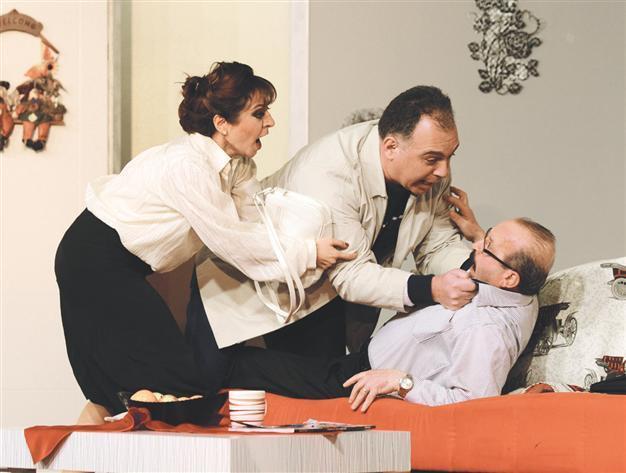Armenian theater needs a permanent stage
ISTANBUL – Anadolu Agency

The Anahit Varış-Hermon Varış Theater Company, which has been maintaining traditional Armenian theater for 42 years with the support of private benefactors and an allowance from the Culture and Tourism Ministry, brings a new play to the stage every year, although it does not have a permanent home.
This year the company takes the stage on Tuesdays and Fridays at the Getronagan High School Graduates Association with the play “Şaşkın Baba,” adapted from Louis de Funes’ film. The play is produced by Anahit Varış and directed by Kirkor Dinçkayıkçı.
Anahit Varış, who has been working for the theater after the death of his husband Hermon Varış, said the theater company has been active since 1972 and took its current name in 1997.
She said they produced a new play every year since their establishment, including “Hisseli Harikalar Kumpanyası” (The Joint Venture Company of Wonders) at the Atatürk Culture Center in Istanbul with the contributions of veteran theater actor Haldun Dormen, as well as plays in Los Angeles and New York.
“We change places all the time. For many years, we have staged plays in Şişli municipality buildings, the Hadi Çaman’s theater and the Dormen Theater. We want a permanent place but we can’t [secure one],” she said, adding they staged comedy plays since people want to laugh.
Varış said the company members’ main professions were not acting. “Everyone has a job. They gather at night after 8 p.m. and do rehearsals. We are real amateurs. An ordinary theater company has a costume designer, décor designer, a lighting technician, etc. But we do all these things here by ourselves,” she said.
She said the Armenian community showed interest in their plays. “Our plays are in Turkish because our viewers are not only Armenians. We reach more people with Turkish plays,” she said.
Varış said being Armenian was not a prerequisite to be a part of the company.
The problem of finding young actors Director Dinçkayıkçı said they had received an allocation from the Culture Ministry for four years and before that, they survived with contributions from individuals in Armenian society.
“Nobody is paid in the theater company, everyone is working voluntarily. This year we have 11 people. We get help from everyone who knows about theater. We went to Dolapdere and Eminönü to find the décor of this year’s play,” he said.
Dinçkayıkçı said actors and directors have positively criticized their plays, and called them “professional.”
“We play adaptations. Our characters are always Armenian,” said Dinçkayıkçı, complaining about the indifference of young actors. “Being an amateur company is a problem. Young people get married after working for three-five years for the theater and leave the theater if their spouse is not in the company. We have beautiful girls but cannot find young actors,” he said.
 The Anahit Varış-Hermon Varış Theater Company, which has been maintaining traditional Armenian theater for 42 years with the support of private benefactors and an allowance from the Culture and Tourism Ministry, brings a new play to the stage every year, although it does not have a permanent home.
The Anahit Varış-Hermon Varış Theater Company, which has been maintaining traditional Armenian theater for 42 years with the support of private benefactors and an allowance from the Culture and Tourism Ministry, brings a new play to the stage every year, although it does not have a permanent home.